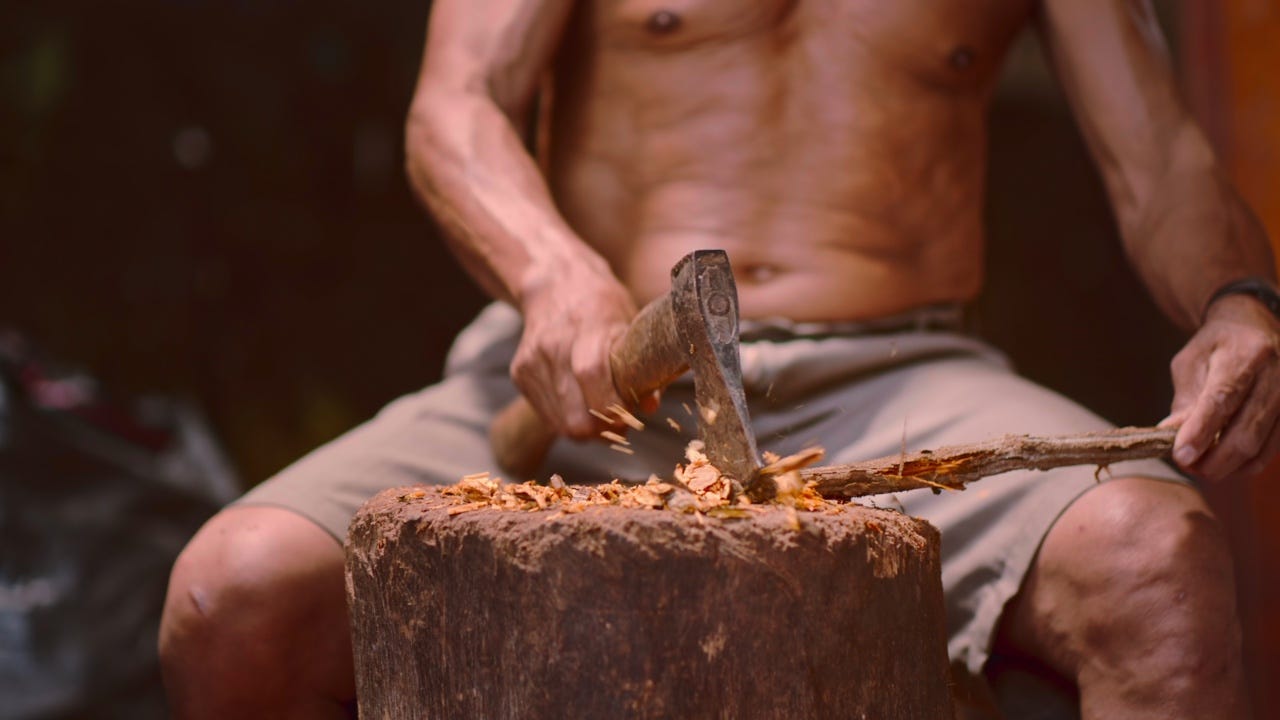- Ayahuasca is a brew of Amazonian plants that have a psychoactive effect when combined.
- The substance has been used as medicine in indigenous South American cultures for thousands of years.
- More recently, ayahuasca has become popular in Western wellness circles as a form of relief for various illnesses and as a path to self-discovery.
- Visit Insider’s homepage for more stories.
Angela Murray tried ayahuasca as a last-ditch effort.
The Florida woman struggled with post-traumatic stress disorder for years after her husband killed her daughter and himself in 2008. She was planning on taking her own life until she came across ayahuasca, a psychedelic plant-based drink with supposed healing properties, through a veterans support group.
An episode of Netflix’s new docuseries “(Un)Well” follows Murray through her second ayahuasca experience during a retreat at Soul Quest Ayahuasca Church in Orlando, Florida. The show also travels to Peru, where indigenous tribes have used the hallucinogenic brew in spiritual medicine practices for thousands of years.
The ancient medicine has made its way into Western culture in recent years. Retreats like Soul Quest are popping up across the United States and Europe, and scores of tourists flock to ayahuasca hotspots like Iquitos, Peru, seeking spiritual enlightenment or therapeutic benefits.
As ayahuasca use makes its way around the globe, inexperienced users - especially tourists - risk taking it out of context, cultural anthropologist Evgenia Fotiou told Insider.
"It's a holistic healing system that addresses body, mind, and spirit, and usually ayahuasca is just a part within the larger system," Fotiou said. "So it's not a panacea. It's not the one thing that will fix everything."
Stories of lethal doses and sexual abuse have also shown a dark side of the ayahuasca tourism boom. The episode details the murder of an influential shaman in Peru and the public lynching of her suspected killer, which exposed cracks in the complicated dynamic between foreign ayahuasca seekers and the locals who provide it.
Ayahuasca contains the chemical DMT, which causes vivid hallucinations and an altered sense of self
Consuming the ayahuasca vine alone won't do much, but when it's boiled along with leaves from the chacruna plant, the resulting concoction has psychoactive effects.
The leaves contain a chemical called DMT, which is structurally similar to the happy-making neurotransmitter serotonin. Normally, your gut enzymes would break down DMT before you could feel its effects, but the ayahuasca vine prevents that from happening (and wreaks havoc on your digestive system in the process).
Most people report "purging," or vomiting, shortly after consuming ayahuasca. After the nausea subsides, vivid hallucinations similar to lucid dreams kick in.
The brainwave patterns associated with ayahuasca hallucinations resemble those observed when people open their eyes, said Christopher Timmermann, a researcher at the Center for Psychedelic Research at Imperial College London.
"Only in this case people are not engaging, they're not opening their eyes," Timmermann told Insider. "So the visual component of the experience engages people to a similar degree as waking reality."
Additionally, ayahuasca has been found to decrease activity in the default mode network, a set of brain regions associated with sense of self, which may relate to the feelings of transformation of identity reported by ayahuasca users.
People claim ayahuasca helped them overcome trauma and untreatable illnesses, but scientific evidence is limited
In (Un)Well, Murray said she felt an overwhelming sense of love during her second ayahuasca ceremony. She reported hearing a voice saying "You've lost enough," which led to a breakthrough in processing her trauma.
While some people try ayahuasca recreationally, many, like Murray, see it as a possibility to treat the untreatable. Other users featured on the show tried ayahuasca for PTSD, treatment-resistant depression, addiction, and chronic physical illnesses.
Scientific evidence on whether ayahuasca can help treat these illnesses is limited. One small placebo-controlled study concluded that ayahuasca, dosed within an appropriate setting, shows promise as a treatment for depression.
But approaching ayahuasca like a Westernized form of therapy may be at odds with the roots of the practice, Fotiou said.
"I think that the hardest thing to translate for Westerners is the spiritual aspect," Fotiou told Insider. "What I see most with Westerners engaging with this is a psychological approach, so they think that this is a therapeutic modality."
In Fotiou's research and experience with ayahuasca, she's found that ayahuasca's benefits can't be boiled down to the substance itself. She urged users to take into account the rituals surrounding the brew, as well as the greater system of plant-based medicine it exists in, for a more holistic view of healing.
Read more:
A study on psychedelic microdosing in rats revealed promising results for anxiety and depression
A major San Francisco Bay Area city just decriminalized magic mushrooms and ayahuasca
